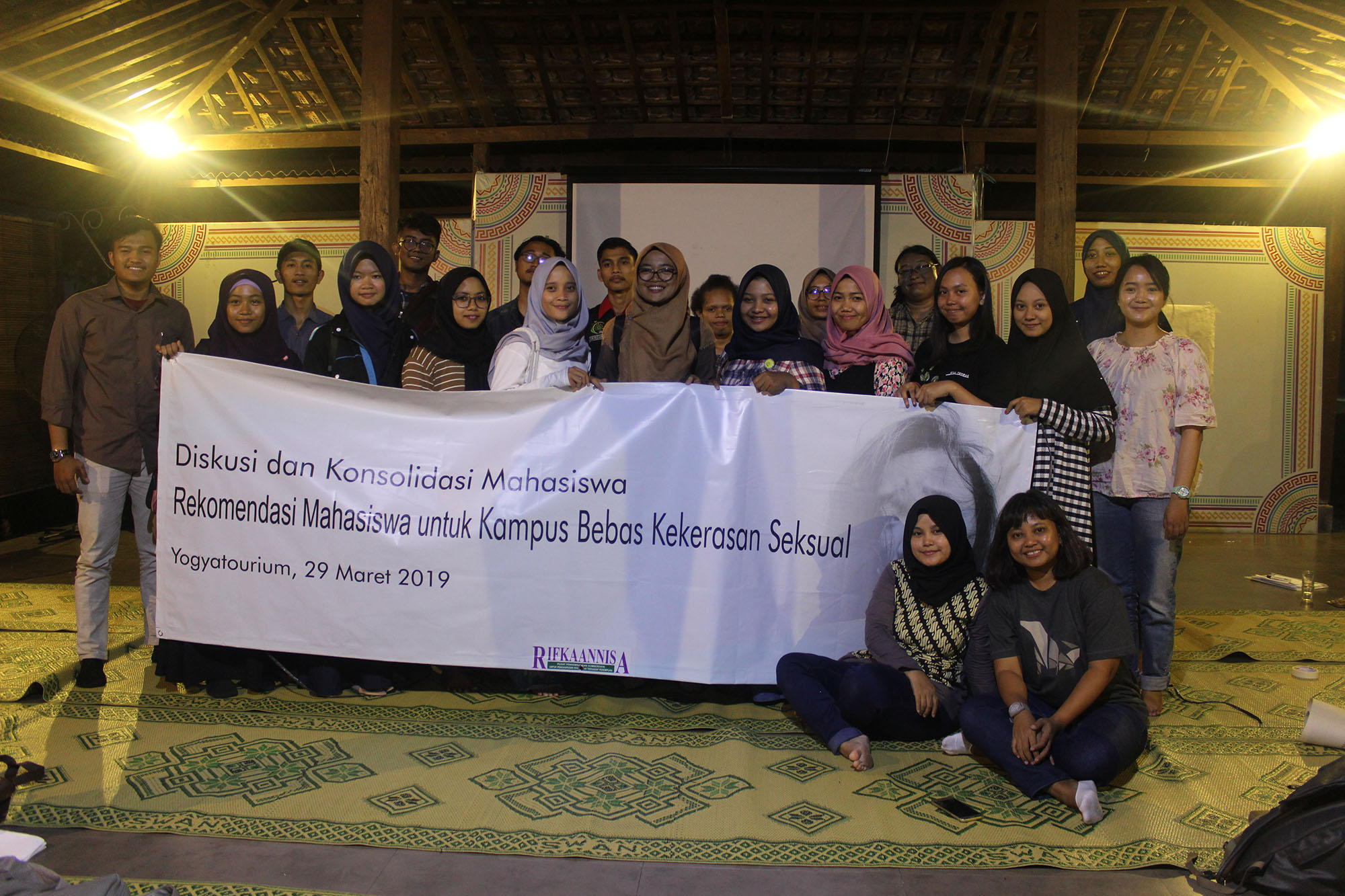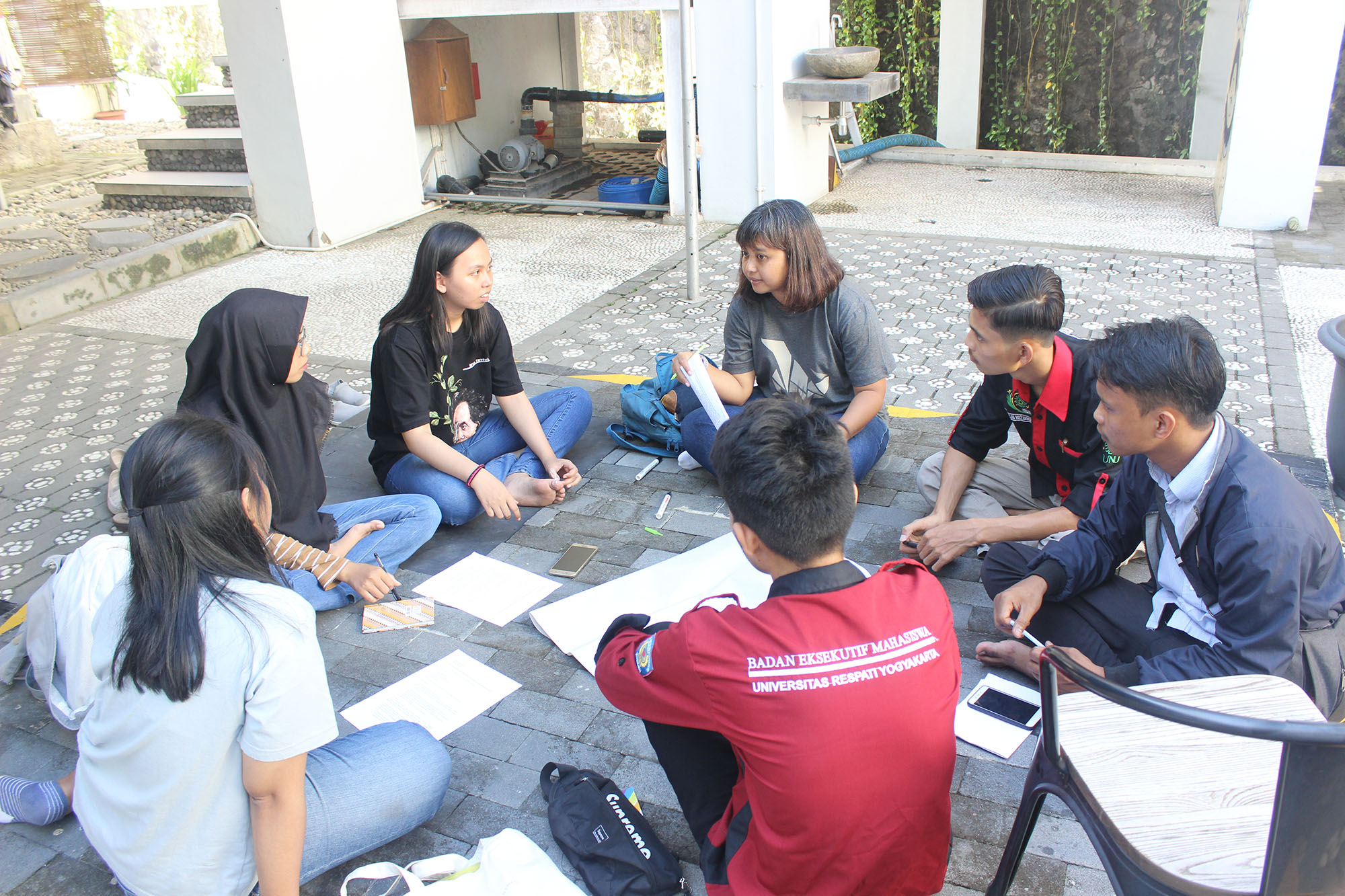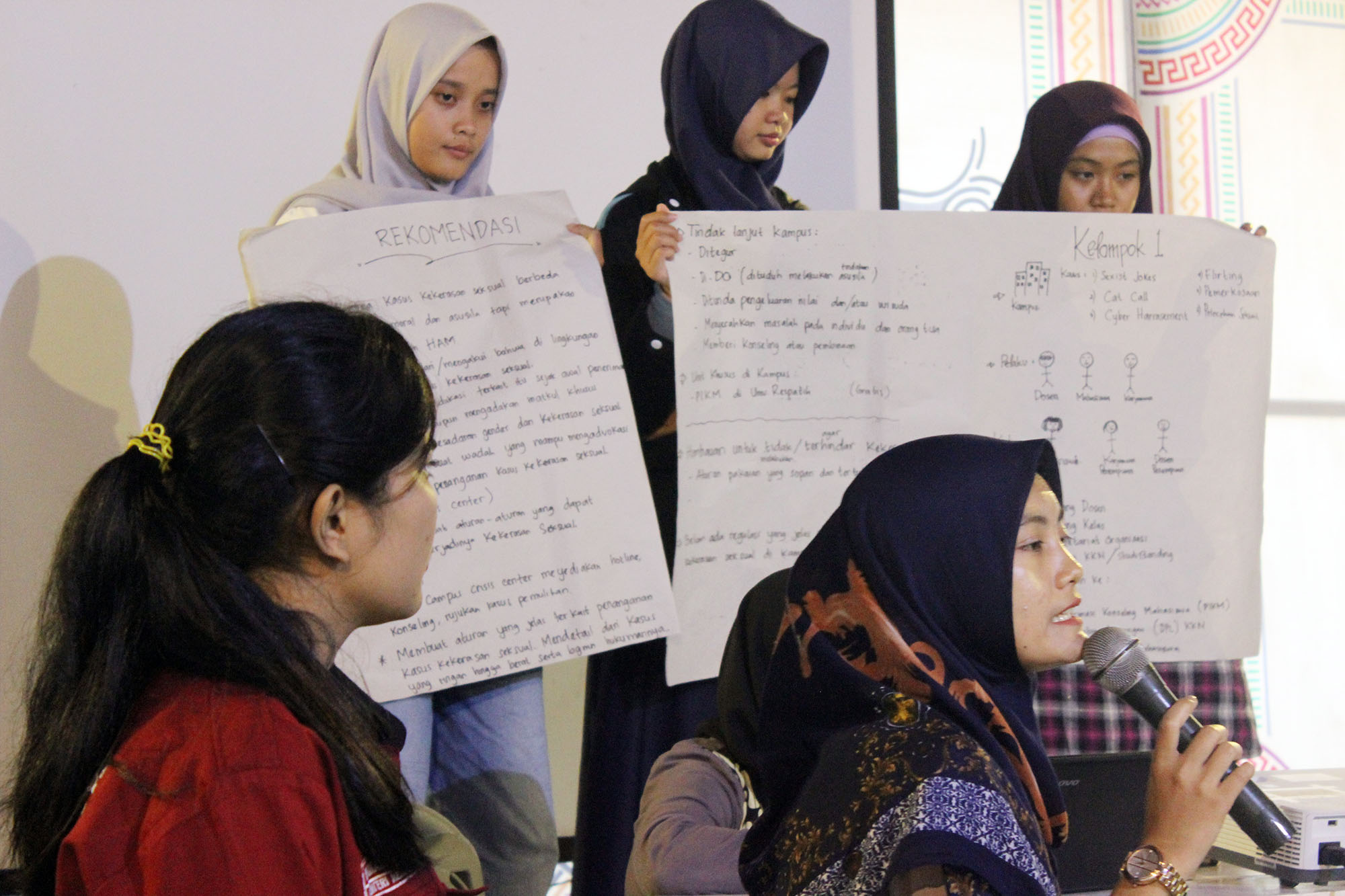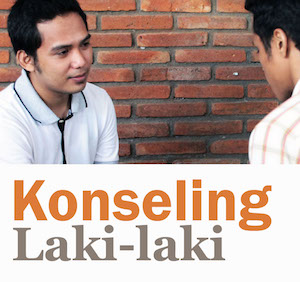
On Friday March 29, Rifka Annisa hosted a forum discussion for university students on the topic of on-campus sexual violence. The headline presentation was given by Rifka’s own Novia Dwi Rahmaningsih, who touched on the problem’s legal and cultural implications. From my perspective as an American citizen, I was fascinated to learn of how Indonesians discuss sexual violence, noting both similarities and differences to what I am familiar with in the United States.
As is the case in the United States, sexual violence afflicts college campuses in Indonesia. There has not, however, been much honest conversation about solving this trend. As Nurul Kurniati, a legal counselor at Rifka Annisa, puts it, “Most Indonesians have not spoken honestly about health and sexual activity because people still consider it very taboo and private. People still assume there’s too much moral burden when talking about it. This is related to issues of culture and religion, which still have a strong influence on societal beliefs.”
Only with the recent high profile rape case at Gadjah Mada University has sexual violence come to the forefront of social discourse. In fact, a 2016 joint survey conducted by Lentera Sintas Indonesia and Change.org found that 93% of rape cases went unreported. “Of the 25,213 respondents polled online, around 6.5 percent—or 1,636 people—said they had been raped and of these, 93 percent said they had not reported the crime, fearing repercussion. Two-thirds of the rape survivors were under 18,” per Reuters.com.
“The biggest obstacle faced by young adult women on campus, in the context of sexual violence, is the lack of knowledge about sexual and reproductive health and rights (SRHR),” shared Novia in a post-program interview. “I was once a human resource worker on one college campus, and when I asked [the students] what they knew about SRHR, no one knew anything.” This “knowledge gap,” as she sees it, is a direct consequence of the low standards of sex education in Indonesian schools, as well as persisting cultural taboos about sexuality.

By contrast, I had a substantial amount of sex education during my high school tenure. Biology professors were required to include a sex education unit in their curriculums, and my school held an annual program dubbed “Social Awareness Day,” which centered around matters of dating etiquette, sexual health and violence, and associated laws. Funny enough, my home state of Tennessee is considered itself to be lacking in sex education in comparison to more “liberal” states like New York, New Jersey, and California. And yet despite Tennessee’s relative conservatism, sexuality is not particularly taboo. My parents for instance have talked openly with me about sexuality from a young age. While certainly not perfect, American universities have made significant strides in addressing on-campus sexual violence. Consent norms are in the vanguard of discourse on sexuality in the United States, and the #MeToo and #TimesUp movements have also gained incredible mainstream traction.
For Indonesians, though, what’s the solution? Novia believes that increased education for young women is the way forward: “I think increased knowledge [about SRHR and affirmative consent] will empower women to make decisions for themselves, thereby reducing their vulnerability to sexual violence. Even when sexual violence occurs, knowledge of affirmative consent will allow women to see the act for what is it—sexual violence—and stop blaming themselves for what they experienced, so that they can seek help.”
What makes cases of sexual violence even more challenging for young women is the Indonesian criminal system’s hard focus on the perpetrators of crimes. The needs of the victims, consequently, are oftentimes forgotten. For a point of contact, Indonesia’s legal code lacks a system of restitution, both for financial and emotional support. “There needs to be more insight into how SRHR will encourage social changes,” added Novia. “[It will change] people’s attitudes so that they see sexual violence not only as an act of immorality, but also as a violation of an individual’s most basic human rights to decide what is done to his or her body. Politically, policies for on-campus sexual violence ought to be a priority—those that seek to promote an awareness about SRHR, prevent sexual violence, offer comprehensive restitution mechanisms for victims, and impose strict sanctions on perpetrators.”
During the actual presentation, Novia walked her audience through numerous case scenarios of sexual violence, duly noting the role that power dynamics and coercion play. For example, she described one instance when a male professor threatened to flunk a female student if she didn’t rendezvous with him at a hotel for sexual favors. In routine fashion, Mbak Novia followed-up with strategies for avoiding and escaping such a situation, reminding the students of their rights and legal protections. Take Gadjah Mada University, where students are ostensibly protected from sexual violence under the Chancellor’s Decree No. 1699 (UN. 1 P / SK / HUKOR / 2016) and Chancellor’s Regulation No. 711 (P / SK / HT / 2013). The protections exist, but students just don’t know about them.
Admittedly, I initially found the exercise somewhat elementary, but I quickly realized how little sexual health and safety are discussed with Indonesian youth. While there was no shortage of desire on the students’ part to learn about these issues, there was certainly a lack of an educational foundation, one that I had taken for granted in the United States. Thus, my realization in that regard allowed me to appreciate both Rifka Annisa’s efforts and the students’ enthusiasm even more.

The event was also relevant to what I’ve been researching more broadly as an intern at Rifka Annisa. For the past four months, I have learned extensively about Indonesia’s broader women’s movement and how historical, social, cultural, and legal precedent have hindered its growth. And if I’ve drawn any grand conclusions from my research project, it would be that women’s movements and their allies around the world have much to learn from one another. As different countries and cultures become more connected in this digital age, it becomes increasingly important that individuals everywhere learn to understand others not as abstractions, but rather as people with real human needs and desires specific to their respective socio-political contexts.
To conclude, I want to highlight Nur and Citra Maudy, who are university students from Ahmad Dahlan University and Gadjah Mada University, respectively. They both attended last week’s event, and I asked them about what they believe to be the greatest challenges facing young women on college campuses. They also shared about what societal changes they’d want to see with regards to attitudes toward women and, more broadly, feminism. As much as my perspective offers an alternative look on sex education and violence, I think it’s imperative to put Indonesian voices in the spotlight.
“Confidence. On my campus, women and men ought to have the same access in the many [social] spheres, such as in the community, academia, and student organizations. Both men and women should be able to hold positions, and they both should have the chance to get what they want. But I believe that women just need to be more confident with themselves…I want people to stop thinking that women who are going out late at night are bad. In addition, I personally want women to see themselves as individuals who can be independent without needing to depend on others…Feminism, to me, means equal opportunities for women without having to be hindered by socio-cultural opinions.”
-Nur, Ahmad Dahlan University
“The biggest obstacle faced by women on campus today is the surrounding environment that does not have a good perspective on gender. The incident experienced by Agni was not new and special in fact, because there were many cases before that have not been officially reported. Some views assume that cases of harassment or sexual violence are taboo things to talk about—sexuality more generally is equally taboo—so that it does not need to be handled explicitly or formally… Campus or university is a smaller scope for the state or society at large, for example. In the socio-cultural realm, I hope that the community and environment in which women are located can have a more balanced perspective. This does not refer to men only, because many women out there are also misogynistic or simply unable to understand their fellow women. In the political sphere, I hope there is a free space for women to express themselves, express their opinions, and even participate in public discussions and policy making. The involvement of women is not only about involving people with sex of women only, but more about getting their perspective, understanding what happened to them, and respecting them like other humans… Feminism is a way of looking at things. It is a perspective not only to see women as oppressed subjects, but to see the larger system that surrounds them. Masculine and feminine roles are not biologically fixed things, but are built or socially constructed. Some of us often act as if a male or female creature is actually an internal reality or something that is true, a fact about us, but actually it is a phenomenon that is happening produced all the time and reproduced all the time… In short, the feminism that I believe in is a matter of security for women from violence (both physically and sexually), increased literacy, reduced poverty, and justice in our society.”
-Citra Maudy, Gadjah Mada University
The writer is an intern from Princeton University, New Jersey, U.S.A.







